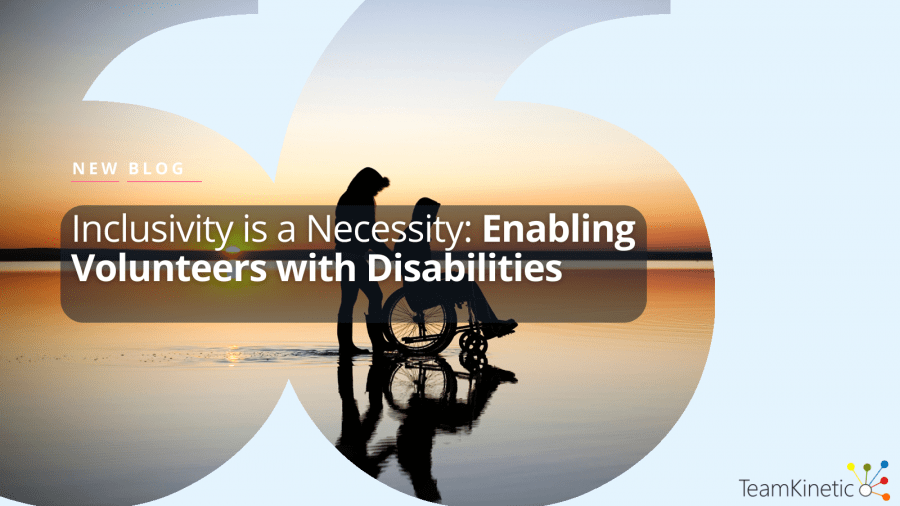Having a learning or physical disability should not be a barrier to volunteering. However, the 2023 NCVO Time Well Spent report found that due to both practical and attitudinal challenges, volunteers with disabilities are less satisfied than volunteers without disabilities. In reality, it is often those who would receive the greatest benefit from volunteering who are least likely to be able to take part. Through increased understanding and inclusivity, this can change.
Understanding your volunteers
- Make your volunteers welcome by providing opportunities that showcase their strengths. Many skills, such as befriending, do not rely on being physically capable.
- Like understands like. Utilising volunteers who can empathise with those going through similar experiences is invaluable for both your organisation and your volunteers.
- In a world that is often inaccessible and unpredictable for people with a disability, building the confidence and trust of volunteers with a disability is vital. Your organisation can be a safe space for those who feel excluded elsewhere.
Active opportunities
For those with a disability, leading a healthy lifestyle is still a priority. Sport England cites low confidence and a lack of appropriate opportunities as contributors to high levels of inactivity among the disabled community. However, TeamKinetic users British Blind Sport and UK Deaf Sport exemplify the growing possibilities for sportspeople with disabilities. As bid for by British Blind Sport, the upcoming International Blind Sports Federation World Games is set to be an inspiring occasion. If carried out in a way that is accessible, volunteering is a brilliant way for people with disabilities to be active both physically and within their community.

Online opportunities
For those who are less able to take part in physical activity, online volunteering is the perfect way to get involved. Since Covid, the amount of organisations offering online volunteering opportunities has risen, and it looks like online opportunities are here to stay. Alongside a low satisfaction rate amongst volunteers with disabilities, the Time Well Spent report concluded that there is no reduction in online volunteer satisfaction as opposed to in-person. This is great news for organisations with a tighter budget, reduced staff, and, importantly, volunteers with additional needs.

TeamKinetic for inclusivity
We have developed a keen understanding of the need for any solution to be inclusive and accessible. All TeamKinetic’s work adheres to the Web Content Accessibility Guidelines (WCAG 2.1 AA), and we have undertaken real-world user testing with the Glasgow Disability Partnership and British Blind Sport. There are several features on our volunteer management system that accommodate volunteers with disabilities:
- TeamKinetic is compatible with Screen Reading software.
- All volunteers can disclose their disability when registering and can update this at any time.
- Volunteer managers can manually add volunteers to an opportunity if volunteers are unable to do so themselves.
As this post has highlighted, inclusivity must be prioritised. If you have any suggestions as to how TeamKinetic can become more inclusive, please comment below or get in touch with alex@teamkinetic.co.uk
You can find TeamKinetic on social media and listen to our podcast:
Twitter Facebook LinkedIn YouTube Instagram Podcast
Have you enjoyed using TeamKinetic? If you could leave us a review on Capterra, we’d really appreciate it! We’ll even send you a little thank you.

